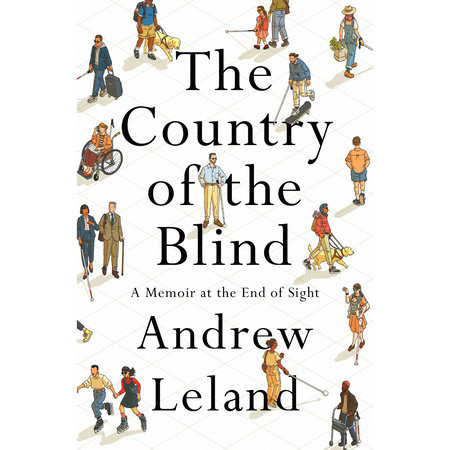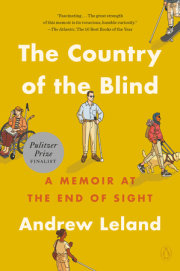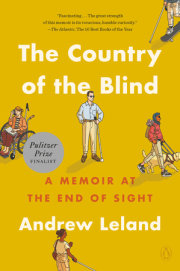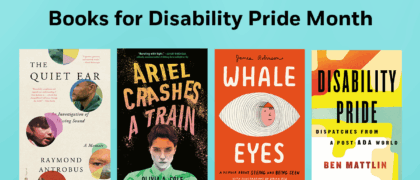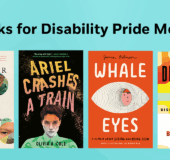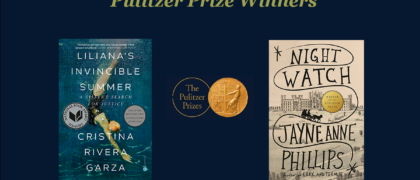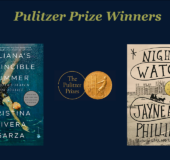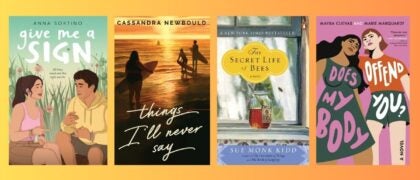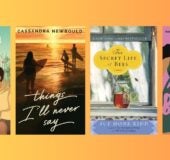1.
Seeing Stars
There are as many ways of being blind as there are of being tall, or sick, or hot. But the popular view has always conceived of blindness as a totality. The blind bards wandering the countrysides of ancient Japan, China, or Europe, the blind housed in asylums in the Middle Ages, all the pupils in all the schools for the blind from the Enlightenment onward, blind beggars and lawyers, war veterans and toddlers-in the eyes of history, as well as those of most of their contemporaries, they all saw nothing. Modern dictionaries still subscribe to this sense: blindness is the antonym of vision, and connotes a destitution of sight. What else could it mean?
Despite the poetic impulse to equate blindness with darkness, it's rarely experienced as a black veil draped over the world. Only around 15 percent of blind people have no light perception whatsoever. Most see something, even if it isn't very useful, by sighted standards: a blurry view of their periphery, with nothing in the middle, or the inverse-the world seen through a buttonhole. For some, scenes come through in a dim haze; for others, light produces a shower of excruciatingly bright needles. Even those with no light perception at all have little use for the popular image of blindness as darkness: the brain cut off from visual stimulus can still produce washes of brilliant color and shape. One blind man, whose optic nerve-the connection between the eyes and the brain-had been severed, described seeing a continuously swirling (and distracting) "visual tinnitus." The Argentine writer Jorge Luis Borges, decades into his blindness, still saw color, which sometimes disturbed him: "I, who was accustomed to sleeping in total darkness," he said,
was bothered for a long time at having to sleep in this world of mist, in the greenish or bluish mist, vaguely luminous, which is the world of the blind. I wanted to lie down in darkness.
The arrival or encroachment of blindness gives rise to a similarly dazzling range of experiences, an efflorescence of blind varietals. There are those born blind, with no visual memories, whose brains-including the visual cortices-develop using four (or fewer) senses to construct their view of the world. Those who become blind in early childhood often retain visual memories that can contribute to an intuitive understanding of visual concepts. The late-blinded may have the most cognitive work to do, forced to relearn basic skills like orientation and information-gathering through new senses, long after their brains' developmental plasticity has hardened. Some late-blinded adults consciously struggle to preserve their storehouses of mental images, like art conservators touching up old and fading masterpieces.
People are blinded by their spouses or strangers, by acts of war or sports injuries, by industrial accidents and bad decisions, malnutrition and infection, genetic inheritances and spontaneous mutations. It's disingenuous to argue that blindness doesn't have a transformative impact on a person's life, but in every case, blindness is only part of the story. The life of a blind person is never fully (or even predominantly) defined by their blindness.
Some (like Borges, and me) lose their sight gradually. I first noticed something wrong with my eyes in New Mexico. My mom and her boyfriend, Jim, had developed a romantic idea about the American Southwest, where they saw themselves riding horses and motorcycles in the high desert, a more genre-appropriate backdrop to their relationship than the strip malls of suburban New York. The summer before I entered fifth grade, we moved to a house about twenty minutes from downtown Santa Fe. I entered my new elementary school awkwardly, sitting on a utility box at recess, reading
The Hobbit in the Hawaiian shirt and shorts I wore year-round. I made friends, eventually, and by middle school I had found my place in a crew of early-nineties southwestern prep-school bohemians, most of them a few years older than I was. I'd follow them into the hills, which were sandy and dotted with piñon trees and juniper bushes, and we'd smoke pot out of wooden pipes we'd bought from long-haired guys at the farmers' market. If I was too young to be smoking pot, I was definitely too young to be taking psychedelics, but I did that, too, keeping up with this group of brilliant and occasionally troubled weirdos in backward English driving caps and Stüssy jeans. We all hung out at Hank's house, because Hank's mom was maximally permissive, getting stoned with us and letting Hank decorate his room like the set for a post-punk staging of
Alice in Wonderland. It was on the hill behind Hank's house that my journey toward blindness really began. I soon noticed that my friends were better at navigating those darkened hillsides than I was. At night, if I wasn't following directly behind someone, or paying painstaking attention, I would walk directly into a piñon tree. My friends laughed and marveled at how high I must have been, and I started to pursue that role: the bloodshot slo-mo wiseacre. The night sky was already perforated, splintered, and fractured, the constellations animated by hallucinogens; how could I be sure that there was anything wrong with my eyes while I was rattling the doors of perception so hard? At other times, the night blindness was more difficult to brush off. At the movies, I was increasingly unwilling to get out of my seat until the lights came up-the prospect of picking my way through a dark, undulating forest of knees and legs in search of the exit was embarrassing, a feeling that was compounded by the confusion I felt about why I seemed to be the only person experiencing it. When I mentioned this new impediment to my mom, she dismissed it: everyone has "night blindness," she said-it's dark at night!
Eventually, I used some pre-Google search engines to diagnose myself. (My dad, who had moved to the Bay Area when we'd moved to New Mexico, had bought me a modem.) Searching for "night blindness" on the early web, I found information about eye diseases on a website whose name I've forgotten-the lean, lost grandfather of WebMD. Your eyes, this ancient website told me, have two types of cells: rods and cones. These make up the retina. The cones allow you to see color and account for central vision. The rods give you peripheral vision and are more light-sensitive; they allow you to see in the dark. Retinitis pigmentosa encompasses a family of inherited eye diseases that gradually kill off the rods. As a result, RP usually appears early in life as mild night blindness, before manifesting as slowly narrowing tunnel vision during the day. (One medical source I found later summarized my story with eerie precision: "Mild night blindness is often ignored by the patients and becomes apparent in the teen age, at evening parties.") RP concludes, usually in middle age, with a flourish: complete functional blindness.
By this time, I was attending a boarding school in Ojai with the children of Montana ranch families and California Central Coast citrus barons. (My mom had begun getting more work as a screenwriter, so we had moved to Santa Barbara.) Night blindness had gone from an ambiguous inconvenience to a fact of life. I assumed I had RP, or something like it, but didn't discuss it with anyone aside from occasionally complaining about it to my mom. When other students snuck into the woods at night to smoke pot, I stayed in the dorm, reading or hanging out with the art-damaged pocket of anti-rancher resistance. I frequently worried that I'd permanently destroyed my intellectual capacity by eating so many psychedelics back in New Mexico; my peripheral vision was filled with flashers and floaters and spinning phantom ceiling fans, visual reminders of the fact that I had ruined a perfectly good brain.
It wasn't until I'd returned home after my freshman year in college that my mom decided that I'd been complaining about my eyes long enough that I should get them checked out by a specialist. She got me an appointment at an eye clinic at UCLA, where I submitted to a long regimen of tests, including an ERG, which involves numbing your eyes and then attaching electrodes to your eyeballs to measure the amount of electricity your retinas are putting out in response to light. (It's like testing the charge on a battery, but the battery is part of your face.)
When I finally met with the doctor, a soft mustachioed man named Dr. Heckenlively, he confirmed what I'd gleaned from Wikipedia's great-
uncle years earlier: I had "classic RP." I could probably expect to maintain good vision during the day through my twenties and thirties. The night blindness would gradually become more severe, and my peripheral vision would erode. As I approached middle age, the degeneration would sharply accelerate. There is no treatment, he told me, but science is making great progress, so by the time I was
really blind, in twenty or thirty years, there would hopefully be a cure. In the meantime, there were some vitamins I could take to try to prolong my useful vision. Did I smoke? Yes, of course I smoked. I also had a radio show on the college station called
A Thousand Frowzy Steams. Well, the doctor told me, I'd need to quit immediately-cigarettes are terrible for ocular health. Can you see stars? he asked. This was something I'd already noticed: starlight had become too dim for me to register. It was also the detail that brought it all home for my mom. She sat up straight: "You can't see stars!"
I don't remember sharing my mom's dismay. Part of this must have had to do with the fact that I'd already successfully diagnosed myself, and I felt validated by the doctor's confirmation of what I'd pieced together from the web. My main memory of the day is of Dr. Heckenlively himself, whom my current retinal specialist refers to with awe as a "giant in the field." His manner was so serious that it almost seemed inappropriate to have a vulnerable response to what he was saying-it felt like I was being enlisted into his army, or accepted into an elite internship program. The focus was on our newly shared endeavor, and I now had a grave responsibility. This was no time for blubbering.
As my mom and I left the eye hospital, I wore a flimsy sheet of dark plastic under my glasses, protecting my dilated pupils from the glare of L.A. at noon. I remember fumbling in the bright restaurant we went to for lunch, my eyes struggling to adjust, knocking over a saltshaker as I reached for my iced tea.
Afterward, we visited a museum downtown, where we saw a show of Richard Serra's
Torqued Ellipses-huge steel sheets rolled into standing curves set within one another, creating open tunnels. Wandering through these brief mazes, each with only two or three turns to make inside, made it feel like the shape of the whole world had changed; the world itself became a torqued ellipse, with only a strip of the outside splashing in. I felt at once claustrophobic and expansive. The sculptures somehow made the world feel larger.
•••
Ancient Greek had one word for totally blind people,
tuphlos, and a different one,
ambluôpia, for “dull-sightedness.” Ancient writers shared our modern predilection for using blindness as a metaphor for heedlessness and various other moral, intellectual, or spiritual failings. The Greeks and Romans spoke of blind ignorance, blind leadership, and the blindness of wealth and love; the Old Testament described bribery blinding its recipient, and the blindness of those who don’t heed the voice of the Lord-those who “have eyes but are blind” (Isaiah 43:8).
Bruegel's 1568 painting
The Blind Leading the Blind makes literal (and adds several participants to) the biblical proverb "If a blind man leads a blind man, both will fall into a pit." The painting shows six blind men in a line across the canvas, each holding the shoulder or stick of the man in front of him. The blind guy at the back of the line looks like he's doing all right. As the eye travels across the composition, though, the aspect of disaster gradually increases: the faces contort with growing confusion and distress as the men grimace and stumble, until we see the final blind man, arms and legs thrown wide, falling backward into the proverbial pit. The rest of the men are about to fall in on top of him.
Most disability histories describe the plight of blind people in these terms-as though they spent their lives in this muddy, cold pit. "Want and suffering were the rule rather than the exception and the blind were an economic liability," Richard S. French observed in his representative study,
From Homer to Helen Keller. "Toleration alone makes such abysmal beggary possible, and rarely does the blind man rise above it." A tour through the Western canon offers a highlight reel of blind abjection: the pathetic stumbling of the cyclops Polyphemus, his eye pierced by Odysseus with timber that had been sharpened then heated to a glowing red point; Oedipus taking long pins from his mother's garment and plunging them into his eyes ("The bloody pupils / Bedewed his beard. The gore oozed not in drops, / But poured in a black shower, a hail of blood"); the third-century BCE biblical story of Tobit, who goes blind after a swallow shits in his eyes, believes his wife has become a criminal to support him, and prays for death.
Several sources describe the practice in Athens and Sparta of killing congenitally blind babies, as well as those with deformities-"club feet, webbed hands, fused fingers"-and more severe conditions the Greeks classified as
terata. The infants would be carried outside the settlement and placed on the side of the road, or in a hole, sometimes in clay vessels, to be killed by being "exposed to the elements," a weird euphemism we use to refer to the actual causes: hunger, cold, heat, animal attack, a flood of water.
Beyond these grim portrayals, until the advent of disability studies in the 1990s, scholarly books dedicated to reconstructing the lives of disabled people were scant. Most histories of blindness were promotional tools: blindness organizations commissioned official histories (like Frances Koestler's
The Unseen Minority, funded by the American Foundation for the Blind), and heads of blind schools wrote their accounts with a view toward assembling compendia of blind suffering to spur donations. Richard S. French, the sighted superintendent of the California School for the Blind, wrote in his own 1932 study that "not only the monstrous and crippled were destroyed but many infant blind must also have suffered a like fate." (French goes on to assert that "among the more primitive peoples . . . old, sick, and crippled persons were a drag upon free movement and a burden to society. They were disposed of in various ways, even buried alive and on occasion eaten.")
Copyright © 2023 by Andrew Leland. All rights reserved. No part of this excerpt may be reproduced or reprinted without permission in writing from the publisher.

